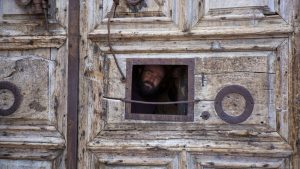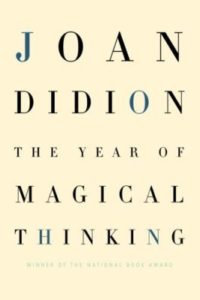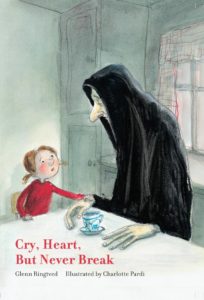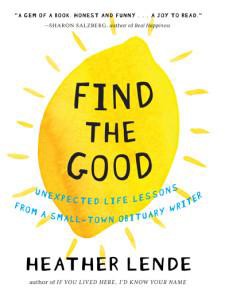Death
Are we learning?
January 24, 2021‘Knowledge was inherent in all things. The world was a library…’
-Chief Luther Standing Bear, Oglala Sioux
Are we allowing the whispers to be heard…
Are we shifting…
How much longer will the loudest most divisive voices continue to disrupt…
What can we do as a collective to gently encourage the shift, for our planet…
For each other…
We’ve been given a narrow space to breath, to decide, to listen, to learn.
We don’t have much time.
Chief Seattle:
‘There is no death, only a change of worlds.’
Elegy for a friend.
December 5, 2020“Death is so shocking. The heart can’t understand why you just can’t hug that person anymore.” -Jewel
In one of the stars I shall be living. In one of them I shall be laughing. And so it will be as if all the stars were laughing, when you look at the sky at night… And when your sorrow is comforted (time soothes all sorrows) you will be content to have known me. You will always be my friend. -Antoine de Saint-Exupéry
For many, COVID’s brick wall is getting closer. For some, tragically, it’s right in front of us. ~dayle
Good Friday
April 10, 2020In Jerusalem yesterday, a priest peers from the door of the Church of the Holy Sepulchre, where Christians believe Jesus was buried. Photo: Ariel Schalit/AP
Father Richard Rohr, Center for Action & Contemplation:
‘It is true that you are going to die, and yet “I am certain of this, neither death nor life, nothing that exists, nothing still to come, not any power, not any height nor depth, nor any created thing can ever come between us and the love of God” (Romans 8:38-39).
On Good Friday, we lament Jesus’ death while living in hope that death does not have the last word on our destiny. We are born with a longing, desire, and deep hope that this thing called life could somehow last forever. It is a premonition from something eternal that is already within us. Some would call it the soul. Christians would call it the indwelling presence of God. It is God within us that makes us desire and seek God.
Yes, we are going to die, but we have already been given a kind of inner guarantee and promise right now that death is not final—and it takes the form of love. Deep in the heart and psyche, love, both human and divine, connotes something eternal and gratuitous, and it does so in a deeply mysterious and compelling way. We are seeing this now in simple acts of love in this time of crisis, such as people volunteering to make masks and deliver food, or people cheering hospital workers arriving for their shift. Isn’t it amazing how a small act of love or gratitude can imprint a deeper knowing on our soul?
The crucifixion of Jesus is the preeminent example of God’s love reaching out to us. It is at the same moment the worst and best thing in human history. The Franciscans, led by John Duns Scotus (1266-1308), even claimed that instead of a “necessary sacrifice,” the cross was a freely chosen revelation of Total Love on God’s part.
In so doing, they reversed the engines of almost all world religion up to that point, which assumed that we had to spill blood to get to a distant and demanding God.
On the cross, the Franciscans believed, God was “spilling blood” to reach out to us! This is a sea change in consciousness. The cross, instead of being a transaction, was seen as a dramatic demonstration of God’s outpouring love, meant to utterly shock the heart and turn it back toward trust and love of the Creator.
I believe that the cross is an image for our own time, and every time: we are invited to gaze upon the image of the crucified Jesus to soften our hearts toward all suffering.
Amidst the devastating spread of COVID-19, the cross beckons us to what we would call “grief work,” holding the mystery of pain, looking right at it, and learning from it. With softened hearts, God leads us to an uncanny and newfound compassion and understanding.’
Strong, and barely controllable.
August 10, 2019“You know the Greeks didn’t write obituaries. They only asked one question after a (wo)man died: ‘Did (s)he have passion?’”
-Marc Klein/Serendipity
☆҉❥☆҉
“There is no passion to be found playing small – in settling for a life that is less than the one you are capable of living.”
-Nelson Mandela
The paradox of nonexistence and living.
August 10, 2017“Grief, when it comes, is nothing like we expect it to be.”
Maria Popova: We continue to grapple with the paradox of our mortality. But arguably our most formidable and intense confrontation with nonexistence comes when we lose loved ones. In ‘The Year of Magical Thinking”, her harrowing record of the year following the death of her husband of four decades, John Gregory Dunne, Joan Didion, born on December 5, 1934, offers a soul-stirring meditation on grief in all its unimaginable dimensions.
Joan Didion:
“Grief has no distance. Grief comes in waves, paroxysms, sudden apprehensions that weaken the knees and blind the eyes and obliterate the dailiness of life. Virtually everyone who has ever experienced grief mentions this phenomenon of “waves.”
Grief turns out to be a place none of us know until we reach it. We anticipate (we know) that someone close to us could die, but we do not look beyond the few days or weeks that immediately follow such an imagined death. We misconstrue the nature of even those few days or weeks. We might expect if the death is sudden to feel shock. We do not expect the shock to be obliterative, dislocating to both body and mind. We might expect that we will be prostrate, inconsolable, crazy with loss. […] In the version of grief we imagine, the model will be “healing.” A certain forward movement will prevail.
The worst days will be the earliest days. We imagine that the moment to most severely test us will be the funeral, after which this hypothetical healing will take place. When we anticipate the funeral we wonder about failing to “get through it,” rise to the occasion, exhibit the “strength” that invariably gets mentioned as the correct response to death. We anticipate needing to steel ourselves the for the moment: will I be able to greet people, will I be able to leave the scene, will I be able even to get dressed that day?
We have no way of knowing that this will not be the issue. We have no way of knowing that the funeral itself will be anodyne, a kind of narcotic regression in which we are wrapped in the care of others and the gravity and meaning of the occasion. Nor can we know ahead of the fact (and here lies the heart of the difference between grief as we imagine it and grief as it is) the unending absence that follows, the void, the very opposite of meaning, the relentless succession of moments during which we will confront the experience of meaninglessness itself.”
brainpickings.org
‘…when the breeze caressed their faces, they could feel her touch.’
April 20, 2016‘The curtains were blowing in the gentle morning breeze. Looking at the children, Death said quietly, “Cry, Heart, but never break. Let your tears of grief and sadness help begin new life.’
What makes the book particularly touching, thanks to Pardi’s immensely expressive illustration, is just how crestfallen — broken, even — Death himself looks the entire time he is executing his mission, choked up with some indiscernible fusion of resignation and recompense.
[…]
To stall the inevitable, the children devise a plan — believing that Death only works at night, they decide to keep refilling his coffee cup until dawn comes, at which point he would have to leave without their grandmother. Here, too, one is struck by the ordinariness of Death, for what can be more ordinary — and life-loving, even — than to enjoy a cup of coffee at the kitchen table?
‘Some people say Death’s heart is as dead and black as a piece of coal, but that is not true. Beneath his inky cloak, Death’s heart is as red as the most beautiful sunset and beats with a great love of life.’
Maria Papova
Brainpickings
Cry, Heart, But Never Break: A Remarkable Illustrated Meditation on Loss and Life
Rilke
June 8, 2015
“I am not saying that we should love death, but rather that we should love life so generously, without picking and choosing, that we automatically include it (life’s other half) in our love.”
Heather Lende finds the good in the end…
May 26, 2015Journalist Heather Lende lives in the small town of Haines, Alaska, where the population is about 2,000. She’s written obituaries for almost 20 years at the Chilkat Valley News.
In doing so, she’s learned to “find the good,” as she says, not only in the lives of people she writes about, but also in her own life. Lende told Here & Now’s Robin Young that a portrait of the town she lives in also comes through her work.
https://hereandnow.wbur.org/2015/05/20/find-the-good-heather-lende








